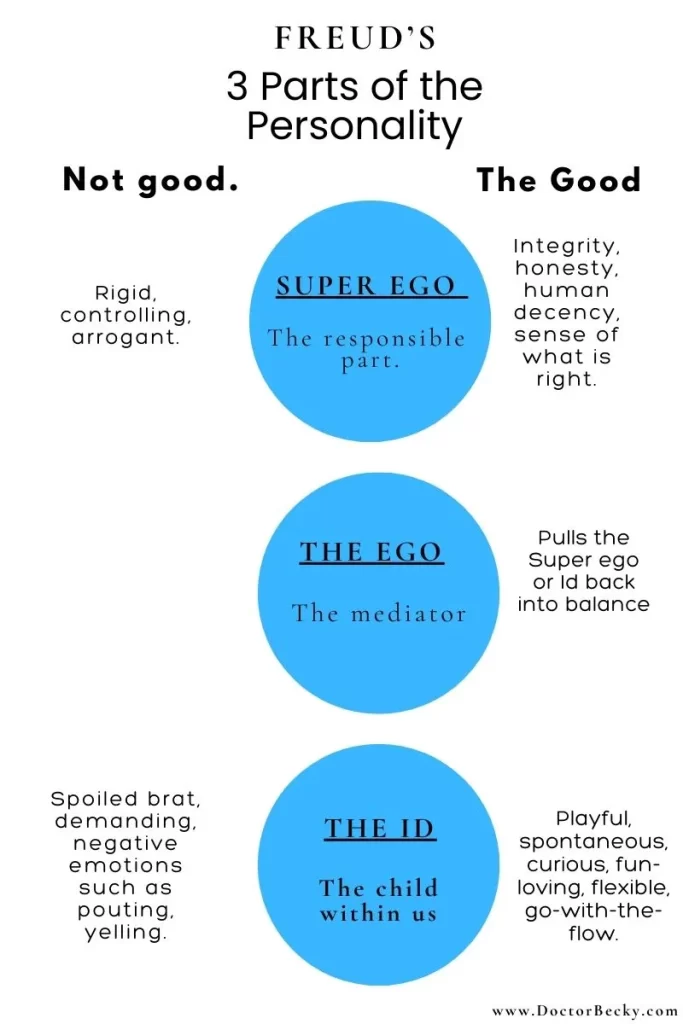Counseling & Therapy for Individuals, Couples, & Families in Little Rock, AR. Find out when therapy is indicated, Becky's … Learn More

Why People Who Say They Need Baby Steps Won’t Change.
Maybe I’m going through an anger stage in my therapy career, but I’m sick and tired of the reasons and excuses some clients use for not doing the work or even taking the small steps they could to feel better and improve their lives and relationships. A therapist should allow clients to reach their changes in their own time, meet them where they are, and have no judgment about when, whether, or how fast they improve, but that’s getting less easy.
Therapy is an interesting career for many reasons, but one thing I like about it is people usually come to see you because they want to. Sure, there is a handful who are dragged or forced in; some are court-ordered to be in therapy; I don’t see those. Occasionally, desperate friends, spouses, or family members drag in someone who is driving them nuts, which usually doesn’t go very well. Still, most people in therapy have an issue they want to sort out and make an effort to call and come in. You might think that someone who does that would be motivated to change, but that’s often not the case.
In therapy, motivation is everything. Back in the day, when I was miserable and suffering, experiencing depression and panic attacks, I couldn’t wait to get better. I was determined to experience positive change and would do whatever it took to get here. I wanted to know why romantic and family relationships were disastrous — was it them? Me? Both? I saw my therapist twice a week for two hours at a time, and it cost a small fortune. It changed my life and tweaked my interest in becoming a therapist, but I didn’t realize then how rare that is.
Going to therapy with the wrong mindset.
Sadly, only about 5 percent of people who go to therapy dedicate themselves to big changes and the hard work that will get them there. I find that some people don’t want to take a deep dive. Instead, they want to tiptoe into the baby pool and only put in the bare minimum effort. “Let’s not open Pandora’s box,” some say.
Many want to vent and complain to someone who has no skin in the game, won’t gossip about them, and has a caring and compassionate heart, while others are not there for themselves; they want me to fix their spouse, sibling, child, or parents. Although that’s fine, it’s not therapy and won’t result in significant shifts in thoughts or behaviors or heal the wounds they carry. People pay for a therapist’s time and can spend it how they want.
All of us come out of childhood with trauma and emotional disabilities. Others have genetic propensities for mood disorders or other mental or emotional issues in addition to that. These types of disorders are treatable, and still, most people wave off getting meaningful help. I sometimes think, “If I could just get them to see this great thing over here … something that would lift their burdens and empower them to do whatever they want, surely they will do it. But, you guessed it, they don’t.
Do-it-yourselfers.
Another strange phenomenon is that people think they know more about how to help themselves than a doctor or therapist would.
“I self-medicate with booze and pot,” I hear this a lot.
“I don’t believe in medications.” says the client. “Why not,” I ask, “Do you know some research that I don’t?”
“I got acupuncture.” Nice, I guess. So, if that was a success, why are you here?
“I know I ‘m always tired and should eat right and exercise, but I just don’t have time or desire.” How’s that working for ya?
Reasons people won’t do things that would make their lives better.
The National Institute of Health says one in five adults has a mental disorder and agrees that most people don’t get treated. (1) The reasons given are:
1. Fear. Not wanting to look weak and/or fear judgment. Some people think therapy is for “crazy” people. Also, many people have so little faith in themselves that they fear the unknown and change.
2. Doubt. Many people can’t imagine that talking to someone would have any impact. This is one I’ve heard a lot. A wife (usually) forces her husband to come in, and at some point, he may mention his surprise that there was so much benefit to therapy. I say, “Talk it up, tell your friends, you can influence people to make it acceptable.” One of my former clients is a firefighter and said his colleagues noticed he was changing, and teased him. “I told them, ‘I’m just trimming the fat!” he said. I loved that so much. He faced it head-on, truthfully and with humor.
3. Pride. Asking for help from someone else is difficult for some people, who may feel they should be able to figure it out independently.
4. Misinformation and ignorance. Not knowing what it is and not caring to find out.
5. Impatience. “I went a couple of times and it didn’t work.” I say, “It would have worked if you had worked.”
6. Cost. This is the only one that has merit. I find it shameful that mental health care is not readily available to all at a very low cost.
The type of therapy I do is educational and directive. I’m not the kind that usually lays back and only validates, empathizes, and handholds. I go for broke the first day. I tell clients, “I never know how many times I will see you, so I’m not wasting time, I’m going to tell you what I see and what I think you need to do once I get a feel for it.” My reasoning is that someone knowledgeable needs to tell them why their life isn’t working at least once, so at least they’ll know. Once I do that, they will either join me to get positive results or won’t.
Pia Mellody, author of “Facing Codependence,” gave her book that name because she saw that childhood trauma caused people to not take care of themselves. They will often live in their misery and terrible relationships their entire lives without taking action. One of my colleagues says about that, “A lot of people are comfortably uncomfortable.” He’s correct. Pia gave her book that title because when people start working toward recovering from their issues, it means they are facing them. Facing the things that aren’t working in your life and doing something about them is the definition of self-care, and it is what healthy people do.
Baby steps.
Roger had been my client in couples therapy with his wife for over six months, and he was making little progress.
“Roger,” I said, “Have you read the book I asked you to read.”
“No, but I will. I, uh, have been, uh, busy.”
“Have you been implementing the things we have talked about? Anything?”
“Oh, uh, I thought about it a few times, but then I forget.”
Roger’s wife, Sandy, rolls her eyes and pipes in, “Becky, he knows I’m frustrated, he knows I am at my wit’s end, he knows one of these days I am going to reach my end point and kick him out. And no, he doesn’t do anything we talk about.”
“Becky, I need to take baby steps, baby steps.”
And there you have it. One more client who has no intention whatsoever to do what it takes to change and improve himself or his marriage. That’s what the words “baby steps” mean to me, and I cringe whenever I hear them. People like Roger don’t intend to change but attempt to buy time from facing a fate they dread by making excuses. I told Roger six months was long enough to see how this venture was trending, and I couldn’t do any more to help his marriage, and they needed to find individual therapy if they were to do therapy at all.
“Becky, I would like to do that and stay with you,” said Sandy. “Roger, I think you can figure out what that means for us.”
Why do so many lack courage?
So much in life takes courage, and so few have it. One of my most shocking realizations as an adult and a therapist is how many people live in constant fear and live in a comfort zone they aren’t willing to venture away from. They live their lives thinking about what could have been but will never be. It will never be because they were unwilling to make themselves feel discomfort of any kind, so they won’t stick their necks out and take a chance on themselves. The difference between a success and a failure is that the successful person took a chance. They faced their discomfort and powered through it. The first baby step of life is punching through fear.
At some point in my life, I decided I didn’t want to have regrets and made that promise to myself. If I wanted something, I was going to at least attempt it. It’s funny how certain things we tell ourselves can fuel us to change everything and have what we want. I didn’t enjoy college or academics in my 20s. I had put in a half-assed effort and was an average student, and only went because of family pressure. Twenty years later, things were different.
Taking action on life’s little nudges to move forward.
I had recurrent dreams about going back to school and felt an unexplainable drive to go to graduate school to become a therapist, even though I wasn’t even sure I could get in. My first step when I decided to attempt to get in was to study the graduate school catalog and take a few undergraduate prerequisites I lacked. I hadn’t been to college in 20 years; computers had been invented since then, and things were very different. I told myself I’d hire a tutor if I needed to. Still, I got through those classes successfully, settled into the new era of education, and moved on to the next step, the graduate record examination, commonly known as the GRE, which is required to get into graduate school. I didn’t prepare or study; I just went and took it and told myself I’d take it again if I had to. Guess what? I did very well the first time. Now it was time to take bigger steps … apply to St. Mary’s University in San Antonio. What a difference it made that I wanted something badly and was now driven to succeed. In 2001, I was paying the tuition and doing it for myself, to make a dream come true. All of a sudden, I was a very good student.
That’s a story about pushing through doubts and fears and seeing if I could do it. If I couldn’t, at least I’d have no regrets. It has brought me joy beyond description. So now, when I see clients with hopes and dreams or a problem they live with that could be resolved with some time and effort, and they choose not to do it because of fear, doubt, or whatever obstacle it is, it’s painful for me. Such things are difficult to comprehend because I know what they are missing. The road less traveled, it appears, is the one of making great things happen in your life.
When I die, I hope to get an exit interview, and I will ask why so many people feel disempowered. Why are so many people afraid? I know from experience that childhood trauma does that to people, and in many ways, adults are scared little boys and girls doing life in adult bodies. The only way out of that is to do the work to grow yourself up. To do that, you have to have courage. It’s not that hard to make big things happen for yourself, but you have to be able to see the big picture and take action. Fear is never your friend.
(1)National Institute of Health Stats on why people won’t get the mental help they need.stics/mental-illness#:~:text=Mental%20illnesses%20are%20common%20in,(52.9%20million%20in%202020).
Becky Whetstone, Ph.D., is a licensed Marriage and Family Therapist in Arkansas and Texas* and is known as America’s Marriage Crisis Manager®. She is a former features writer and columnist for the San Antonio Express-News and has worked with thousands of couples to save their marriages. She can work with you, too, as a life coach if you’re not in Texas or Arkansas. She is also co-host of the Call Your Mother Relationship Show on YouTube and has a telehealth private practice as a therapist and life coach via Zoom. To contact her, check out www.DoctorBecky.com and www.MarriageCrisisManager.com. Also, here is how to find her work on Huffington Post. Don’t forget to follow her on Medium so you don’t miss a thing!
For licensure verification, find Becky Whetstone Cheairs.

Understanding Marital Crimes and What to Do About Them.
Every married person commits marital crimes; the question is, how seriously should one weigh a partner’s mistake, and what can and should be done about them? Hopefully, we all believe in grace, and if punishment is chosen, it should match the level of the crime. To help you understand how a marriage and family therapist like me deals with them when working with couples, I will provide Becky’s Marital Criminal Code, listing the level of offenses, penalties, and provisions that couples may consider. This works two ways … the person who commits the errors and the one who is the accuser. Some accusers think crimes were committed when they were not, so it’s important to know what constitutes various misdemeanors and felonies in marriage, and if you’re not sure, go to a couples therapist and have them help. Also, if you are a nit-picking partner who points out every mistake, you will likely be cast in a very negative light by your partner. We all must choose our battles and not call out every violation we see. We must be perceived as fair-minded.
Still, the misdemeanors that aren’t marriage-ending on their own can become marriage-ending if you do them repeatedly after your spouse has requested you to stop. A non-responsive spouse’s stock will drop over time if they don’t take their partner seriously and attempt to correct the little things that annoy another person. If you promised to honor and respect your partner when you said your vows, that’s what this is.
I recommend we all show grace when possible, and if something is worth mentioning, make sure it’s worth bringing to the table. No one wants to feel like they have a compliance officer in their home. It’s annoying, kills romance, and, as I said, over time, it can seriously damage your relationship. Rule of thumb to keep in mind: Do not be obnoxious; don’t intentionally annoy. If you want to marry and have a best friend, enhance their life rather than create burdens for them.
The Marital Misdemeanors.
Parking tickets.
Very minor offenses that most often should be overlooked. Leaving dishes in the sink, forgetting to take out the trash, underwear, and/or clothes on the floor, getting mustard in the mayonnaise jar, forgetfulness, white lies, minor clutter, leaving the lights on in unoccupied rooms, leaving the toilet seat up, leaving laundry out and not put away, you get the idea.
What you should do: In marriage, no one should make demands; instead, we all have the right to respectfully request. First, make sure your request is reasonable and worth calling out. If it is, you can say, “Roger, I’d like to make a request. My request is that instead of just putting your dirty dish in the sink, you go ahead and either wash it or put it in the dishwasher. I’d really appreciate it. “
What the offender should do: If you value your marriage and believe that to get along with another person over the lifespan, you must bend and compromise; you sincerely will not want to impede their happiness. Take the path of least resistance, and exhibit that you believe in we over me, and honor their request. Not just this time, but stop doing what annoyed them in the first place.
Speeding tickets.
Someone got a little out of hand. It’s stuff that rarely happens, but when it does, it either scares, mortifies, or annoys you. Maybe they yelled at someone in public, engaged in road rage, drank too much at a party, flirted with someone, or allowed their jaw to drop when an attractive person walked by, but you feel disrespected, embarrassed, or both.
What you should do: If you are in public, you can either hang out a little longer or, without creating a scene, ask your spouse to quietly leave with you if at all possible. Tell them you would like to speak about what happened when you are both calm and sober, if sober is applicable. When you are, tell your partner about your feelings and what you need moving forward, “It embarrassed me when you started to slur your words in front of everyone. They were laughing at you. I’d like you to promise me that you will never allow that to happen again.”
What the offender should do: You are in a partnership, remember? If your partner was mortified or embarrassed by whatever it is you did, you need to take stock of yourself and ask how you let that happen. Make the adjustments necessary to ensure it’s not a repeat offense. When these types of things happen once, they are minor crimes; when they happen repeatedly, the charges get more serious. Approach the situation with humility, taking full ownership of what happened. Do not be defensive.
Reckless driving ticket.
One of you crossed a very important line. Maybe your partner reached out to an old love on Facebook, or perhaps they said something bad or embarrassing about you or to you in front of friends or family. Maybe they talk badly about you to your children or try to get a valued friend or family member to align with them against you. Are they enmeshed with their biological family at your expense? Did you see them kiss someone else? Perhaps their family did something dastardly, and your spouse didn’t support or defend you. Have they built up debt you know nothing about? Maybe they asked to borrow money or have you co-sign or buy them something that is too big of an ask. Lies and deceit are serious marital crimes. Whatever it is that happened, it was disloyal, and you feel violated.
What you should do: It’s time to discuss appropriate boundaries for couples. Our spouse comes before our biological family in the healthy family pecking order. Couples turn toward one another when things come up, not turn away and seek out alliances or confidences with others. If you have an issue with your partner, talk to them about it or a therapist, and no one else. You need to go to a Marriage and Family Therapist trained in trauma and have them help you plug the leaks here. Without professional help, your spouse likely won’t understand why it was so bad, and there will be no change.
What the offender should do: Get your s**t together, man. It’s time to become an adult instead of remaining an emotional child your whole life. You need to conduct yourself like the loyal and cherishing spouse you promised to be. You’re not single anymore, no excuses.
The Marital Felonies.
Certain actions by a spouse are so egregious, so damaging, that they could be marriage-ending. When we marry, most of us have agreed to love, honor, cherish, and remain faithful. Whether or not your vows state these the following things explicitly, they should be understood. Marriage therapists commonly know about the three A’s, or marital felonies, that can kill whatever goodwill there is between two people who have vowed to stay together for life — adultery, abuse, or addiction. All three of these are terrible crimes and potential marriage-killers.
Adultery.
Though most of us promise ourselves that if our spouse ever cheats, we will divorce, the truth is that 75 percent of us stay and work it out. Marriage is complicated that way. Things aren’t cut and dry, and attachments are strong bonds that are difficult to throw away. However, when your spouse cheats on you, it hurts almost like nothing else. There are different degrees of cheating; the least difficult to recover from is the one-night stand with someone you didn’t previously know, and the most difficult is probably the long-term, emotionally connected love affair. Add to that my child being born, and things can get even more terribly ugly. Then there is every type of cheating situation in between. One thing is certain after someone cheats, nothing will ever be the same, and the cheater shouldn’t expect it to be.
What you should do. Stabilize the situation. Get the third person as far away from your marriage as possible, whatever that means in your situation. Your marriage will not survive if this does not happen. If you have to call their spouse, do it. Couples therapy is a must-do; if your spouse won’t go, go alone.
What the offender should do. Humility is your only option. Fall on your sword, or accept your fate as a future divorced person, or person who remains in a marriage where your partner looks at you with continuing disgust. If you have children, they’ll consider that you cheated on them, too. Get into couples therapy pronto.
Abuse
There are three types of abuse, verbal, emotional, and physical. Before I understood these dynamics, I had a feeling a man or two had been verbally and emotionally abusive to me in relationships. I’d say something about it, they would deny it, and I was too ignorant to know that I had been right. The bar is not terribly high to qualify as abuse, and that’s as it should be. No one should have to tolerate unkindness and verbal nastiness from anyone. Any false accusations, name-calling, financial control, or control of any kind qualify as abuse. Laying a hand on anyone in anger qualifies as physical abuse. Every person should be aware of what abusive behavior is, so I urge you to take a look at the national abuse hotline website and inform yourself about what it entails: https://www.thehotline.org/identify-abuse/understand-relationship-abuse/. One more thing, anyone who abuses another rarely changes that much.
What you should do. Educate yourself about what abuse is. Domestic violence centers in your area have free counseling to educate you about it and to offer you specialized help about what to do. I know because I did my grad school internship at one and was amazed at their great work, and I learned so much. Do not hesitate to use it. Use the link above to read what you can, and promise yourself that even though you are attached to the person abusing you, you will do what is best for you in the end.
What the offender should do. Most people who abuse won’t face the truth that they are abusers. It’d be a phenomenon first step if you could do that. Get therapy with someone who specializes in therapy for abusers and controllers. This is not optional. Get in an anger management support group. Some domestic violence centers have specialized training and groups for abusers; use them. This is a nasty, ugly dynamic and is dangerous. If you hope to continue with your family intact, you must dedicate yourself to this proposition.
Addiction.
There are many types of addiction … substance abuse, food, sex, video games, love, gambling, smoking, shopping, pornography, Internet. All are serious. A habit becomes an addiction when it starts affecting the quality of work and relationships. Stopping these things cold turkey usually ends up exchanging one addiction for another. Twelve-step programs hit these issues at the root … all are toxic shame related, which is the idea that one is defective, not good enough, and doesn’t fit in. Without dealing with the toxic shame that fuels an addiction, a person is wasting their time. Get serious about ending your addiction by getting tried and proven help from an addiction professional.
What you should do. To be healthy yourself when you are married to an addict, you need therapy for codependent and trauma-based relationships, and I highly recommend you join a support group like Al-anon or Codependents Anonymous (CoDa). Educate yourself, work on yourself, and get as healthy as possible. Stop focusing on your partner’s problem. They know you want them to quit. Focus on how you can be healthy now and moving forward.
What the offender should do. Come out of denial, drop your defenses, get a professional therapist who specializes in the type of addiction you have, and join a 12-step program. That includes getting a sponsor and getting serious about getting healthy. No excuses, do it.
Capital Crimes
A capital crime in marriage is when a spouse does something so impossibly horrible that nothing is left to be done except to end the marriage. In the most extreme cases, you may learn that your spouse murdered, raped, harmed, molested someone, committed other types of crimes, endangered the family with their actions and behaviors, destroyed family finances, or more. Some capital crimes are more subjective than others but know that not every person should have or deserves grace or mercy for their horrific actions.
Conclusion.
When we do something wrong in our relationships, we must make it right and do the repair. A person usually only gets so many chances before their spouse will lose hope for change. Learn to apologize and to stop doing the things that annoy or scare your partner. Responsiveness is key in marriage — don’t blow off your spouse when they address something that is not working for them. Don’t minimize or deny. Being able to look at yourself in the mirror and face the part of you that you don’t like or is flawed will be the best and most powerful thing you could do for yourself.
Becky Whetstone, Ph.D., is a licensed Marriage and Family Therapist in Arkansas and Texas* and is known as America’s Marriage Crisis Manager®. She is a former features writer and columnist for the San Antonio Express-News and has worked with thousands of couples to save their marriages. She can work with you, too, as a life coach if you’re not in Texas or Arkansas. She is also co-host of the Call Your Mother Relationship Show on YouTube and has a telehealth private practice as a therapist and life coach via Zoom. To contact her, check out www.DoctorBecky.com and www.MarriageCrisisManager.com. Also, here is how to find her work on Huffington Post. Don’t forget to follow her on Medium so you don’t miss a thing!
For licensure verification, find Becky Whetstone Cheairs.

How to Get to Know the Different Voices in Your Head.
Getting to know the different parts of your personality is fascinating and can help you become healthier and happier. Graphic: Adobe Stock/agsandrew
One of the things that has helped me understand people, personal relationships, and why we all do what we do is learning that we all have different parts within our personalities. I think of it as several people that talk to me in my head; I listen as each attempts to elbow its way into consideration and influence me to do what it wants. All of us experience this phenomenon, and it’s not to be confused with schizophrenia, where people say they “see and hear voices.”
The voices we hear are different parts of us, wanting different things. Some may be dysfunctional and lead us to do self-destructive things; others attempt to lead us to health and happiness, and still, others try to protect us from being hurt. Then there’s everything else in between. Overachieving and ambitious Becky wants to get some more writing done; the leisurely and fun-loving part of Becky wants to nap and then watch Netflix. My most responsible self wants me to prepare taxes. Who will get me to take the actionable steps they most want? How do I manage the voices and decide which one to listen to?
Getting clients to become aware of the different parts of themselves that are vying for their attention is fascinating, and they love it. As we identify their various parts, I ask them to visualize and name them. When we get to know these parts, we can better see the ones that lift us up and take us down, and self-awareness changes everything. Whereas the worst part of me would be under the surface, occasionally urging me to do self-sabotaging things, now that I have pulled her up out of the basement and into the light, I know who she is, what she wants, and when she’s likely to work to get my attention.
It started with Freud.
Sigmund Freud was the first to say humans had three parts to their personality. He named the three parts the Super-ego, the Ego, and the ID. Below, I have made a graphic to help clients understand how the different parts play out …

Freud’s three parts of the personality. Two of them have a positive and a negative side. The trick of life is staying on the positive side, with each part in balance. Graphic: Becky Whetstone, Ph.D.
The three parts.
Think of each part as a voice that speaks to you in your head. Here is how that might sound when it’s doing what it’s supposed to do:
Superego: I’ve got to get this project finished this weekend.
Ego: Yes, that’d be great, but you are exhausted and need to take a break. You don’t have to do it all this weekend, it’s not urgent. Your children and wife want to spend time with you.
Id: Yeah, I hoped to go to the lake, sit outside, and play with the kids. Maybe I will go ahead and do that. That sounds really nice.
In a healthy person, all three circles are balanced. The Super-ego and ID must get their needs met enough to be satiated, and if they don’t, a person’s personality is likely to switch over to the negative side of the three circles. This is when our worst selves show up and do damage to ourselves and others. Ideally, you should be able to sense or feel when you are working or playing too much and then respond when your ego tells you to pull back.
This is NOT Multiple Personality Disorder (MPD).
When I do this work with people, they often ask if they have MPD. First, they don’t call it that anymore; today, the diagnosis is known as Dissociative Identity Disorder (DID). In this very serious and incurable disorder, the parts of the personality are not aware of one another. So if I am being Suzy, the good little girl, and switch over to Nasty Nancy, neither one has any idea the other exists.
The rest of us have our different parts that Freud named; each one is aware of the other, and each part has offshoots. My husband has a part I call Sargeant Cheairs (pronounced Chairs). Sgt Cheairs comes from his Super-ego and is very vigilant about safety and hazard precautions. He makes sure things are locked down and unplugged, patrols for dangers, and hates riding in cars when others are driving (they hate it, too, because he points out every potential mistake, problem, or potential hazard along the way.) I can tell when my husband’s usual self is in the room and when it’s Sargeant Cheairs. They have different energy, carry themselves differently, and even have different facial expressions.
I could let Sargeant Cheairs drive me nuts, but turning him into a character we can talk about has made this issue become something that amuses us both to no end. He embraces the character and has even started talking in a British accent when he finds hazards and unlocked doors, signaling the arrival of you-know-who. We both imagine him in an Army uniform, making sure everything in the house is perfect. If we didn’t have so much fun with it, it would have the potential to lower the stock of our marriage, and that’s what I want to point out to you. If you have an annoying part of your personality, create a persona around it, give the part a name, imagine what it looks like, and talk and laugh about it. Every human relationship needs a solid sense of humor about one another’s quirks and eccentricities to keep from going mad.
What Carl Jung said.
Carl Jung (1) worked with Freud but later branched off and developed his own ideas about the personality, broadening our understanding. He said there were four archetypes that form our personalities: the persona, the shadow, the anima/animus, and the self, and we can better understand ourselves by understanding them. Jungian therapy is still popular today, and I use it all the time in my practice with hypnosis, analyzing dreams, and helping clients pinpoint archetypes like Sargeant Cheairs.
I’m not going to share everything about Jung’s complicated theory of the personality, but I do think it’s worthwhile to point out the four archetypes:
1. The Persona. The false face or mask we show to the world. We all learn to conform in childhood and end up playing roles of who we think we ought to be based on what our parents, peers, and other influencers want us to be. The most common ones I see are pleasers, perfectionists, overachievers, rebels, rescuers, fixers, martyrs, caretakers … and none of these reveal who we really are. The majority of people spend their entire lives in their persona, which is sad because it has nothing to do with who you really are.
2. The Anima/Animus. Experienced unconsciously, whatever gender you identify with, the anima/animus part of your personality is the opposite of that. It is the male part of me, for example. All of us are a combination of male and female traits, though some (needlessly) feel threatened by the idea. I am in the male part of my personality when I am working, having to be confident and decisive. I am in my female energy when I am being soft, nurturing, and vulnerable. There is a lot more to this, worthy of another blog, but for now, understand we all have traits of both genders within us. One reason it’s important to understand male and female energy within us is because it directly affects the romantic and sexual chemistry between two people. For example, if I have a female client who is hard and managerial like a man, she will not have sexual chemistry with her husband, who is also that way. We need the polar energies for romantic and sexual chemistry.
3. The Shadow. The part of us we reject, disown, or don’t recognize. Jung described this as the opposite of our persona … it is more authentic and wants to hold you accountable to being true to yourself. Sometimes it does that in self-destructive ways. It also projects our disowned or unrecognized traits onto others. I have seen the shadow do some crazy and dangerous things to force a client to be true to themself, which could have been prevented if a client could learn to come out of their persona and act authentically. Trust me, being true to yourself is the only path to mental and emotional health.
4. The Self. This is us as we really are. It unifies all the different types and personalities within us without covering up or hiding any of them. A healthy self can be itself, warts and all. One issue I see frequently is that a client has decided subconsciously that they must be seen by others as good and perfect — this would be an issue from the persona.
If a persona must be seen as perfect, it will never allow you to admit fault in any situation, which is not conducive to healthy relationships. The self can admit fault and understand we humans are all imperfect, weird, and mistake-makers, and it’s okay with that. I encourage everyone to embrace this idea.
Why it’s important to understand our different selves.
Numerous theories of counseling have incorporated our different selves in understanding who we are and why we do what we do. Each one is a little different, and most are very helpful. It’s an important first step to identify the different voices and understand their agenda.
I often tell clients that my family was obsessed with eating when I was a child, and we’d go to an all-you-can-eat buffet and load up our plates. (My dad believed in eating, not dining.) Dad would inspect our plates and beg us to pile them higher and eat more. If we didn’t do it ourselves, he’d bring some himself and throw it on our plate, whether we wanted it or not. For the longest time, I thought feeling nauseated after a meal was normal. On the other hand, my family was fat-phobic and would talk about the status of everyone’s weight when they weren’t around.
Later in life, I realized I had two different parts that represented these dysfunctional family traits. I envisioned Ursula the Sea Witch from Little Mermaid on one end of the couch, saying in her gravelly voice, “When are we going to eat?” and a smoking, skeletal female on the other end waving her cig at me and saying, “Don’t get fat.” Once I was able to identify those terribly dysfunctional voices, their under-the-radar influence in my life was done. I decided to listen to my self, which was healthy and balanced Becky, who sits between the two and is determined to eat when hungry and in moderation. That’s a win.
An exercise to discover some of your voices.
Here are some of the most common voices that my clients have … see if you have any of them, and if you do, visualize them, then try to figure out where they came from. For example, I know the food and fat-obsessed voices I had came from my family’s weird eat-tons-but-don’t-get-fat dynamic. Realizing these things kills these negative voices’ power over you moving forward.
- The taskmaster. Has endless lists of things you need to get done and does not like you to sit still.
- The critic or judge. Constantly critiques everything you do, how you do it, and maybe even how you look.
- The protector. The part of you that defends and protects you, puts out personal fires.
- The controller. Wants things their way. Will manipulate to get it done.
- The martyr. You bloody yourself to please others.
- The victim. It’s never your fault.
- Ambitious egomaniac. Claws to attain significance.
- The addict. The part of you that does whatever it is, too much, and will not be stopped.
- Nasty teen. A sassy or nasty teenager who loves telling people off and having the last word.
- The impulsive one. I want it, and I want it now.
There are a lot more, but hopefully, you understand what I’m saying here. Get to know the voices and their purpose for being in your head, and take the dysfunctional voice and get that need met in a functional way. For example, I don’t need Ursula the Sea Witch to remind me to eat, and I don’t need the skeletal smoker to warn me about getting fat. I have my healthy self, who can manage both of these things in a way that is balanced and compassionate.
(1) https://www.simplypsychology.org/carl-jung.html
Becky Whetstone, Ph.D., is a licensed Marriage and Family Therapist in Arkansas and Texas* and is known as America’s Marriage Crisis Manager®. She is a former features writer and columnist for the San Antonio Express-News and has worked with thousands of couples to save their marriages. She can work with you, too, as a life coach if you’re not in Texas or Arkansas. She is also co-host of the Call Your Mother Relationship Show on YouTube and has a telehealth private practice as a therapist and life coach via Zoom. To contact her, check out www.DoctorBecky.com and www.MarriageCrisisManager.com. Also, here is how to find her work on Huffington Post. Don’t forget to follow her on Medium so you don’t miss a thing!
For licensure verification, find Becky Whetstone Cheairs.






 Becky Whetstone is an Arkansas native and has a Ph.D. in Marriage and Family Therapy from St. Mary’s University in San Antonio, Texas. She is a Licensed Marriage and Family Therapist (LMFT) in Texas and Arkansas.
Becky Whetstone is an Arkansas native and has a Ph.D. in Marriage and Family Therapy from St. Mary’s University in San Antonio, Texas. She is a Licensed Marriage and Family Therapist (LMFT) in Texas and Arkansas. 





















































































































